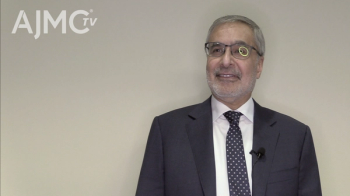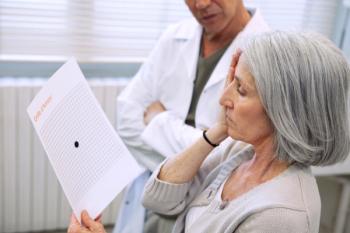
Poor Sleep, Insomnia Symptoms Linked to Emotional Exhaustion in Health Care Workers
Poor sleep and insomnia symptoms were both associated with an increased likelihood of elevated emotional exhaustion among emergency health care workers.
A study investigating
Health care worker burnout is a pervasive issue, affecting up to 60% of professionals in the field, according to the study published in
Sleep disturbance, which has been linked to various negative consequences, including fatigue, reduced self-esteem, and diminished empathy was the primary factor evaluated. Therefore, investigators examined the association between sleep and burnout in emergency medicine health care workers.
The study conducted a cross-sectional analysis of health care workers from emergency departments (EDs) in a large urban medical center. Participants, totaling 126 individuals, completed an online questionnaire covering demographics, sleep patterns, and burnout symptoms.
Sleep quality and insomnia symptoms were assessed using the Pittsburgh Sleep Quality Index (PSQI) and Insomnia Severity Index (ISI), respectively. Burnout symptoms were evaluated through the Abbreviated Maslach Burnout Inventory–9, focusing on emotional exhaustion, depersonalization, and reduced personal accomplishment. Statistical analyses were adjusted for age, sex, race, and ethnicity, and depression symptoms, all known factors associated with sleep.
A total of 126 participants were included, with a mean age of 40.9 years. Among the participants, 79 were women, accounting for 62.7% of the sample.
Results revealed that poor sleep quality and insomnia symptoms were prevalent among the study population. Poor sleep was positively associated with elevated levels of depersonalization and emotional exhaustion. Insomnia symptoms were also linked to higher depersonalization and emotional exhaustion scores.
The investigators observed specific associations between sleep quality, insomnia symptoms, and burnout dimensions. The PSQI score, indicating sleep quality, was found to be positively correlated with depersonalization (r = 0.27) and emotional exhaustion (r = 0.23).
However, there was no significant correlation between PSQI score and reduced personal accomplishment (r = −0.12). Similarly, the ISI score, reflecting insomnia symptoms, showed a positive association with depersonalization (r = 0.26) and emotional exhaustion (r = 0.30), while no significant correlation was found with reduced personal accomplishment (r = −0.04).
The study further explored the impact of poor sleep quality and insomnia symptoms on burnout. Findings showed individuals with poor sleep quality, as opposed to good sleep quality, were 2.45 times more likely to experience elevated emotional exhaustion (OR, 2.45; 95% CI, 1.02-5.89).
Participants with insomnia symptoms were 2.56 times more likely to exhibit elevated emotional exhaustion compared with those without insomnia symptoms (OR, 2.56; 95% CI, 1.11-5.93). However, neither poor sleep quality nor insomnia symptoms were significantly associated with elevated depersonalization or reduced personal accomplishment.
“The current findings add to evidence linking sleep to burnout,” investigators concluded. “Future work should examine whether individual-level sleep interventions moderate the impact of organizational and system-level approaches (eg, increased staffing, reduced clerical burden, and circadian-based scheduling) on burnout.”
Reference
Shechter A, Firew T, Miranda M, et al. Sleep disturbance and burnout in emergency department health care workers. JAMA Netw Open. 2023;6(11):e2341910. doi:10.1001/jamanetworkopen.2023.41910
Newsletter
Stay ahead of policy, cost, and value—subscribe to AJMC for expert insights at the intersection of clinical care and health economics.
















